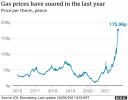brad465
Established Member
Neither the way things were being done pre-Thatcher, nor the things that have happened as a result of Thatcher, are the way to go forward from here. The world faces a whole new plethora of challenges and many of these will require new solutions. For example, infinite growth is both impossible and the biggest driver of climate change, and happens because our entire economic model is based on boosting GDP. The way to solve this is to base an economy/society on alternative measures of wellbeing with a sustainability focus.The other lot? You think I'm being too critical of Thatcherite policies of the 1980s and their short-sighted, quick profit now, screw tomorrow thinking?
True Britain was not in a great place in 1979, but bleeding the patient, like some medieval surgeon, wasn't the best way of curing it.
Furthermore, the events post-2008 have absolutely not been how to manage an economy, where "growth" was achieved through producing and buying goods off cheap borrowed money and inflating housing and stock market bubbles, which benefitted a small group in society and created a "k-shape" recovery. It's entirely possible the relatively low inflation of the last decade largely arose as a result of this, in particular through perhaps burying it in inflating those market bubbles.





